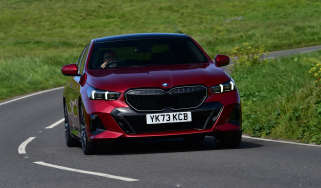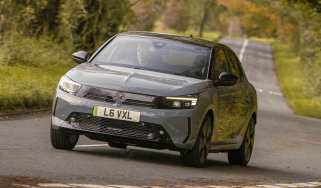Waymo begins testing self-driving cars with no one behind the wheel
Full details on Google's 'Waymo' self-driving sub-brand, as partnership with Fiat Chrysler produces fully autonomous minivan
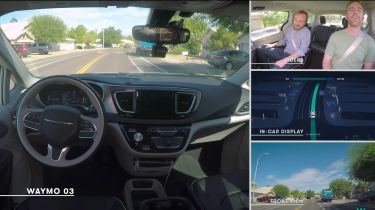
Google spin-off tech brand Waymo has made an important announcement in the race to develop self-driving cars; the firm has begun testing autonomous vehicles on public roads with no driver or engineer behind the steering wheel whatsoever.
The announcement marks an important milestone, as years of development - around eight in the case of Google/Waymo - is beginning to translate into serious trust in the technology.
• Self-driving cars: everything you need to know
Waymo's fully autonomous vehicles are restricted to a metropolitan area in Phoenix, United States for now, but soon the firm promises that its self-driving cars will be testing in a public area the size of Greater London, with no need for anyone to sit in the driver's seat. Limited public access to the completely autonomous vehicles has been organised too, as participants in the Waymo early access programme in Phoenix will be able to use the cars for commutes and short trips.
The kitted-out Chysler Pacifica Hybrid minivan used by Waymo is the product of Google and Fiat Chrysler moving in to a facility in Michigan together, with a production run of 100 planned.
[[{"type":"media","view_mode":"content_narrow","fid":"179163","attributes":{"alt":"","class":"media-image","height":"235","width":"420"}}]]
Waymo, the new Alphabet Inc. business. will build on Google’s years of development and over 2 million miles of real-world self-driving data for the Pacificas, alongside over 1 billion miles completed in simulators.
Waymo won’t focus on producing its own car. Instead, it will partner with manufacturers and sell on its technology to third parties. We already know that Fiat Chrysler is interested in using the Google backed system, but we do not know when a fully fledged production model with Waymo tech on board will appear.
The new Alphabet company is developing technology which it says will render steering wheels and pedals obsolete too – a serious legal hurdle, but one that’s becoming smaller given recent changes to the laws surrounding autonomous testing in Detroit, Michigan.
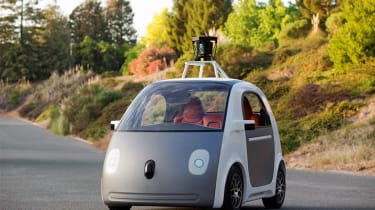
The Google Car and the law
Driverless cars are always good for a headline, and not always for the right reasons. The Google self-driving car has had its share of headlines both good and bad with the more unfortunate ones including a bump with a bus, various other shunts and the refusal of one test car to move into congested traffic because the human drivers were too close together. Despite the sniping of the media and the understandable uncertainty of the public, the project rolls on and each new milestone is greeted with a frenzy of excitement by technophiles around the world.
Autonomous car technology is a legislative minefield, but the US National Highway Traffic Safety Administration reportedly confirmed in a letter to Google in 2016 that an ‘Artificial Intelligence’ could reasonably be considered the driver of a car under federal law. This is potentially significant for Google, and other companies working on driverless cars, as it could open the door to the ultimate goal of cars that can operate without any input or monitoring from a human becoming a legal reality in the US. Testing for vehicles with no driver behind the wheel whatsoever was approved in Michigan last year.
Do Google cars have a steering wheel?
Currently, nearly US states only allow testing of driverless cars on public roads if they have ‘normal’ controls, and a human in the driving seat ready to take over in emergencies
Those cute little electric Google Car prototypes frequently seen on test in California and a couple of other US states, are generally shown in corporate videos with no driver controls. In fact, that’s a little disingenuous as when they’re driven on public roads Google confirms that the cars are fitted with removable steering wheels and pedals to comply with the law.
Perhaps the approaching legal minefield is the reason Google recently hired a new legal chief, while pundits have also suggested it’s because the Google Car project is soon to become a standalone company. If that is genuinely the case, it can only be because Google thinks the technology can soon start making the firm some money.
Google car: a test bed for autonomous driving tech
Something the future of the Google Car appears not to hold at the moment, is Google entering the automotive industry in the manner of Tesla, and attempting to disrupt the establishment as a new carmaker. Company executives have been saying as much for a couple of years. Instead, it seems Google is racing to develop an Artificial Intelligence that can be licensed for use in the potential billions of self-driving cars (or other personal transport systems) that will surely crowd onto roads around the world in future decades.
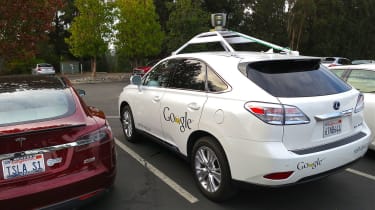
To that end, Google and Fiat Chrysler Automobiles announced in May 2016 a joint venture to build 100 self-driving MPVs for test purposes, making FCA the first officially announced Google Car collaborator. In the same way that its Android Auto system is integrating Google mapping and smartphone technology into increasing numbers of new cars, the Google Car is seen as a route to getting more Google software into the world's vehicles, rather than a way of Google competing directly with Toyota, Ford and General Motors.
The race to develop autonomous car technology
Many rivals are battling Google in the push ahead with autonomous driving tech, of course, including automotive electronics giants Bosch and Delphi, tech firms Apple and Uber, and carmakers including Audi, BMW, Honda, Mercedes-Benz, Nissan, Peugeot, Toyota and Volvo.
With all those manufacturers launching autonomous features for their vehicles – and probably rolling out more capable self-driving systems as public demand and the legal landscape changes – there’s a growing need for legislation around global standardisation of systems. Unfortunately, with companies investing so heavily in their own patented technology, that standardisation seems a long way off.
What's your view on the Google Car? Is the tech giant's vision of the future of motoring one you want to see become reality? Let us know in the comments...

